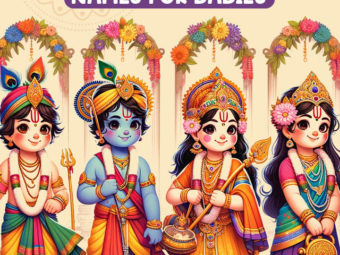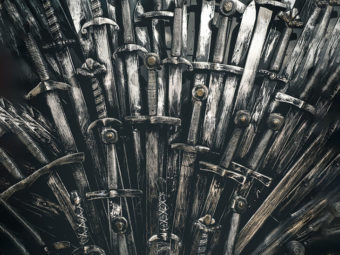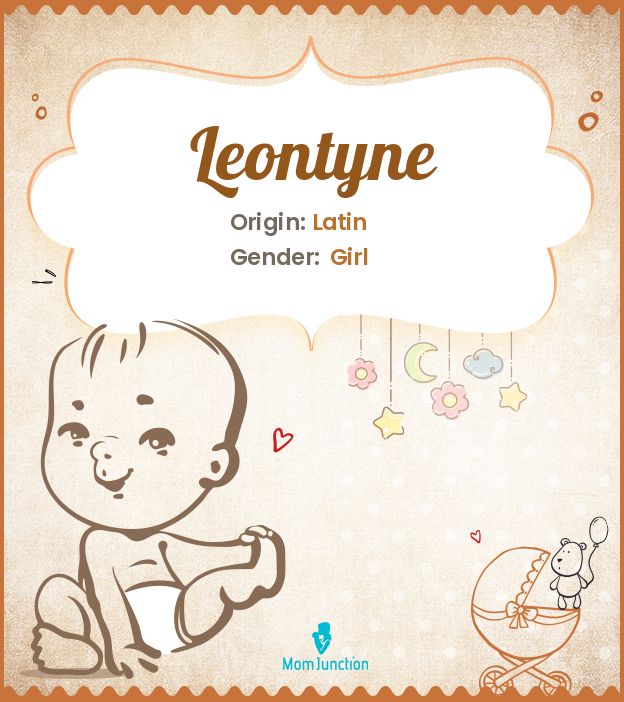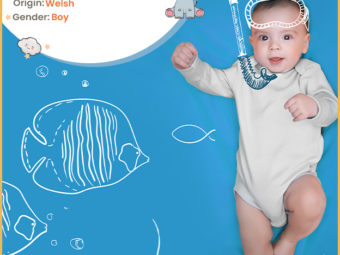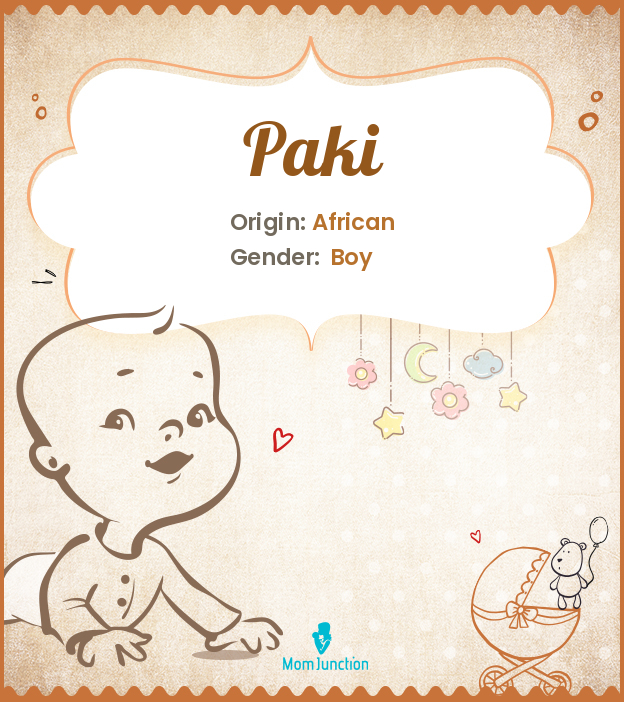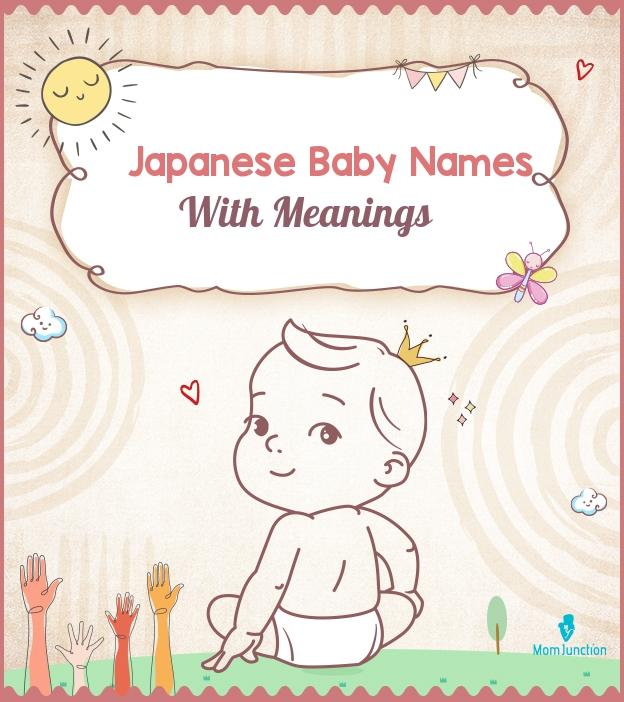
Illustration: MomJunction Design Team
Japan, one of the most developed countries in Asia, not only has a long and rich history but also has a slew of adorable names to boot. If you are looking for Japanese baby names with meanings, you are spoilt for choice. Japanese baby names do not just embody ancient Japanese beliefs but also echo their artistic forms like gardening, haiku poetry, architecture, and noble lifestyles such as the Samurai Bushido Code. Some names also reflect the birth order. Taro, for instance, means ‘the first-born male’. Many names are also based on nature. Rio, meaning ‘one who is like a river,’ and Kiku, meaning ‘chrysanthemum,’ show the inextricable ties of the country with nature even despite futuristic advancements technologically. Moreover, names describing certain characteristics of the baby such as Makaira meaning ‘one who brings happiness,’ and Hideaki, meaning ‘excellent,’ are commonly used. Japanese names have also gained popularity in Western countries in recent years due to the growing popularity of anime and manga. Names like Mikasa and Akira are anime-based names that are slowly gaining popularity in the US (1). But whether you select a traditional Japanese name or a modern one, its meaning in Japanese is likely to be complex. That’s because one Japanese name can have a plethora of meanings. Almost every Japanese name can be written in different ways using kanji. The Katakana and Hiragana style of writing may also result in different meanings (2). Hence, a simple Japanese name like Aki could have diverse meanings such as ‘sparkle,’ ‘autumn,’ ‘bright,’ ‘clear,’ ‘morning sun,’ and ‘smart’ depending on the kanji used. Moreover, in Japan, only children or familiar people are usually called by their given names. All others are addressed using their titles like -san or -sama (3). Below is a list of Japanese baby names along with their meanings. Browse the tool to shortlist your most favorite names and create your baby name list.
| Name | Gender | Meaning | |
|---|---|---|---|
| | | | Darkness; Power; Mysterious |
| | | | Spiritual leader |
| | | | Simplicity; Tradition |
| | | | Dawn |
| | | | To appear suddenly |
| | | | Moonlight |
| | | | The one who is experienced or who knows the way |
| | | | Strong warrior |
Japanese names are growing in popularity due to their sweet sound and fresh appeal. Despite Japan showing tremendous technological advancements in recent years, their names remain rooted in their rich cultural heritage and values. From the simple Ai to the powerful Chikafusa, this list consists of a variety of Japanese baby names with their meanings to make it easier for you to pick one for your little one. These names map the entire country and come to you on a single page. Choose the best names for your baby from this list as they deserve nothing but the best.
Infographic: Amazing Japanese Baby Names For Boys And Girls
Japan has always been known for its rich cultural heritage. It is a country that takes both its past and its future seriously and makes sure both go hand-in-hand. From Akari to Nagi to Yuna, these names have diverse meanings and origins. Look at this infographic to know the most common Japanese baby names.
Illustration: Momjunction Design Team
Frequently Asked Questions
1. What Japanese name means rare beauty?
Hayami is a Japanese name for girls that means rare beauty.
2. What Japanese name means sparkle?
Aki is a Japanese name that means sparkle and bright.
3. What Japanese girl name is lucky?
There are several Japanese names that mean lucky. Some of them are Kota, Yukito, Koki, and Sara.
4. How are Japanese names typically written and pronounced?
Japanese names are written in the kanji script, which consists of symbols that represent different words. These symbols also give rise to different pronunciations depending on the context of the name. In addition to this, some names might also be written in phonetic language, known as hiragana or katakana.
5. How have Japanese naming trends changed over time?
The naming trends of Japan have changed according to the period of time, surroundings, situation, and modernization. For example, before World War II, names such as kiyoshi (meaning innocence) and Masaru (meaning bravery). However, after the World War, people started to prefer names that mean happiness and new beginnings, such as Keiko (meaning grace) and Sachiki (meaning happiness).
6. How do Japanese naming traditions differ from other cultures?
In western culture, the first name is followed by the family name. However, in Japanese culture the family name comes first and then comes the first name of the person. But, in recent times, Japan has also started to put family names after the first name to keep up with modernization.
References
- Popularity of name Akira.
https://www.ssa.gov/oact/babynames/ - A Brief Exploration of the Development of the Japanese Writing System.
https://scholarsarchive.library.albany.edu/cgi/viewcontent.cgi?article=1008&context=honorscollege_anthro - Japanese Culture: Naming.
https://culturalatlas.sbs.com.au/japanese-culture/japanese-culture-naming





